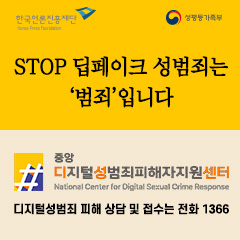
In South Korea, there are various types of visas and issuance methods for foreign nationals. The required documents for each type of visa may vary based on the type of residence and the specific immigration office or branch.
Except for the cases of foreign workers, diplomacy, overseas Korean, marriage migrant, working holiday (H-2), and official business, foreigners can work in Korea under two main types of visas: E-7 visa and D-10 visa.
The D-10 visa includes D-10-1 which is specifically for job seekers and allows graduates to engage in job search activities. Upon successful job search, they can transition to E-1 to E-7 visas. The D-10-1 visa permits a six-month stay in Korea for job-seeking purposes and allows short-term internships with receipt of training fees (salary).
Those who have graduated from universities including associate degree in Korea and have a job-seeking score of 60 or higher on the point system are eligible for the D-10-1 visa. The initial stay period is six months.
The E-7 visa is an employment visa for individuals looking to work under contract with public institutions, private enterprises, etc. Unlike the D-10 visa, the E-7 visa has a residency period of 3 years and is granted to individuals possessing specialized knowledge, skills, or expertise.
The E-7 visa is categorized into five main job groups, each having its own job codes: ‘Professional’, ‘Semi-Professional’, ‘General manpower’, ‘Skilled workers’, and ‘FTA Independent Professionals’.
To qualify for an E-7 visa, one must meet any of the following conditions: ▲Possession of a master's degree (including foreign master's degrees) or higher related to the job groups ▲Relevant bachelor's degree with over one year of experience in the respective field (post-graduation experience only) ▲Over 5 years of work experience in fields related to the job groups
Once a visa is granted, individuals have the right to work and are protected as workers. They must adhere to labor laws and labor contracts in South Korea.
(한국어 번역)
한국다문화뉴스 = 심민정 기자ㅣ대한민국은 다양한 외국인 비자 종류와 사증 발급 방법이 있다. 체류자격별 첨부 서류 등이 다르며 출입국사무소나 출장소 명에 따라 제출서류가 달라질 수 있다.
외국인노동자, 외교, 재외동포, 결혼이민, 워킹홀리데이(H-2), 공무를 제외하고 외국인이 한국에서 일할 수 있는 비자는 크게 E7비자와 D10비자가 있다.
D10 비자는 일반구직 D-10 visa가 있어 한국에서 대학교를 졸업한 학생만이 이 비자를 발급받아 구직활동을 할 수 있다. 구직에 성공하면 E1~E7 비자를 발급 받을 수 있다. D10비자는 구직을 목적으로 6개월 체류를 허가해주는 비자로, 해당 비자를 발급받아 연수비(급여)를 받고 단기 인턴을 할 수 있다.
국내 학사를 졸업한 자로써 구직 점수표 상 60점 이상인자가 비자 발급 자격에 해당되며, 1회 체류 기간은 6개월로 연장은 불가능하다.
E7비자는 공공기관, 사기업 등과 계약에 따라 근로를 하려는 사람이 받을 수 있는 취업비자이다. D10비자와 달리 체류기간이 3년이며, 전문적인 지식, 기술, 기능을 가진 자가 받는 비자이다.
E7비자의 직종은 5가지로 크게 구분될 수 있으며 각 직종마다 직종 코드가 있다. 대표적은 직종으로는 ▲전문인력 ▲준전문인력 ▲일반기능인력 ▲숙련 기능인력 ▲FTA독립전문가이다.
E7비자를 발급 받는 조건은 다음 조건 중 하나를 충족하면 된다. ▲도입 직종과 관련 있는 분야 석사 이상 학위 소지(외국 석사 포함) ▲관련있는 분야 학사학위, 1년 이상 해당 분야 경력(졸업 후 경력만 인정) ▲도입 직종 관련 5년 이상 근무 경력이다.
한편, 정상적으로 비자 허가를 받고 취업하면 근로자 권리와 보호를 받을 수 있으며, 우리나라 노동법과 노동계약을 준수해야 한다.





















